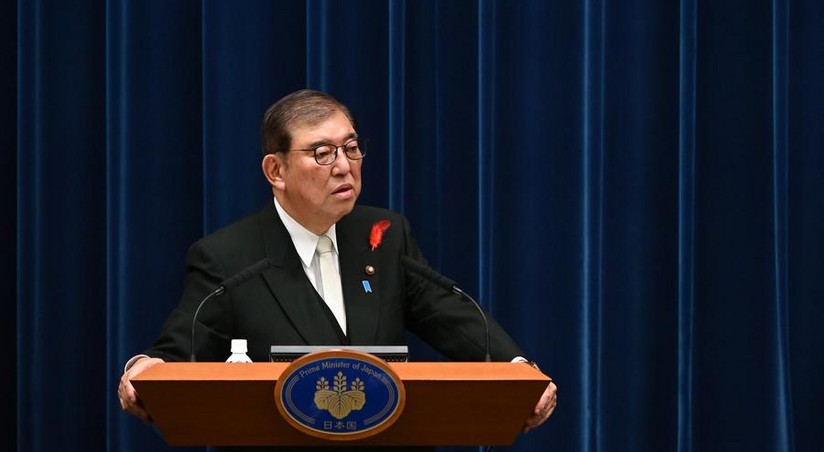Japanese Prime Minister Shigeru Ishiba on Friday vowed to pursue peace while firmly keeping in mind the lessons from and “remorse” over World War II, as Japan marked the 80th anniversary of its surrender in the war, Report informs via The Mainichi Shimbun.
Speaking at a memorial ceremony for the war dead in Tokyo, Ishiba said Japan will never again take the path to war and stressed the need to pass down “painful” memories of the war to future generations as survivors continue to age.
He became the first Japanese leader since 2012 to use the word “remorse” at the annual commemoration ceremony. Following the precedent set by his recent predecessors, however, he did not mention Japan’s wartime aggression and the suffering it caused across Asia.
“We should never repeat the devastation of war. We will never ever make a mistake in choosing the path to take,” Ishiba said at the ceremony held at the Nippon Budokan arena, his first as premier.
“The remorse and lessons from that war should once again be engraved deeply in our hearts,” he said.
A moment of silence was observed at noon, the time when 80 years ago Emperor Hirohito declared his country’s surrender in a radio broadcast.
Emperor Naruhito, accompanied by Empress Masako, also expressed “deep remorse” at the memorial, saying the calamity of the war should never be repeated.
Participants, including about 3,400 family members of those killed, mourned around 3.1 million casualties of the war in Japan. The number includes victims of the US atomic bombings of Hiroshima and Nagasaki.
The passing down of wartime experiences has taken on greater urgency due to the aging of survivors. For the first time, more than half of the participants at the memorial ceremony were born after the war.
Ishiba chose not to issue a memorial statement for the 80th anniversary on Friday, unlike past leaders who released statements on the 50th, 60th, and 70th anniversaries. These statements have been closely scrutinized by other Asian nations that suffered under Japan’s wartime aggression.
Japan has spent the decades since the war committed to promoting peace under its war-renouncing Constitution, which permits the use of force only for self-defense.
Still, wartime history has long strained Japan’s relations with China and South Korea. China fought what it calls the 1937-1945 War of Resistance against Japanese Aggression, while the Korean Peninsula was under Japanese colonial rule from 1910 to 1945.
The United States, which fought fierce battles with Japan after its 1941 attack on Pearl Harbor and later dropped atomic bombs on Hiroshima and Nagasaki in 1945, has become Japan’s closest security ally since the war.
At ceremonies last week marking 80 years since the atomic bombings, Ishiba stressed the need for Japan to work toward a world free of nuclear war and nuclear weapons.
Russia has brandished its nuclear threat as its war in Ukraine drags on, while North Korea continues to advance its nuclear and missile programs. In June, the United States attacked Iranian nuclear sites.


AloJapan.com